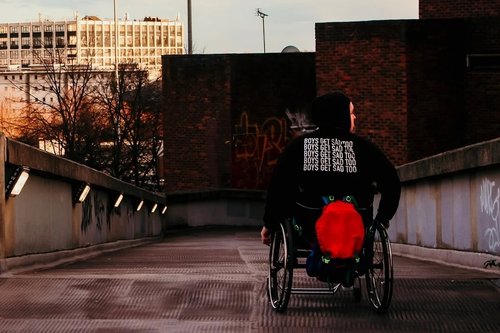Cracking the code on background checks: unveiling the process and what awaits you
Sep 19, 2022
6 mins


Content specialist passionate about storytelling
You’ve found your dream job, sailed through the interview process, and are one step away from being presented with a shiny, new employment contract. You think you’ve passed the last hurdle when the recruiter asks for your permission to conduct a background check. While the mention of it might throw you for a loop, background checks are standard practice and, in some cases, required by law. In New York City, employers that use them are required to perform two types of background checks: one during the interview process and one when a conditional offer of employment has been made.
To give you a good understanding of the goals and objectives of background checks, as well as what you should know before going through the process, here’s what we’ll cover:
- Why employers conduct background checks
- How background checks work
- How to prepare for a background check
Why employers conduct background checks
On the morning of November 2nd, 1986, 82-year-old Velma Ponder Scott decided to visit her brother at Deering West Nursing Center outside of visiting hours. Upon entering the facility, she was violently confronted by nurse Ken Hopper, who told Scott that she would need to come back later to see her brother. The situation escalated and eventually, the 6’4” nurse struck Scott and pinned her to the ground.
Following the incident, it was revealed that Hopper was unlicensed and had over 56 criminal offenses on his record. The case was a prime example of negligent hiring, meaning that the employer should have known about their employee’s background and therefore never hired him. Because of their negligence, the company was forced to pay hundreds of thousands of dollars to the Scott family.
Most employers want to avoid situations like this, so they will look into criminal records, driving records, credit scores, and work history. The extensiveness of the search will vary by employer, but you should be prepared for any company to conduct a mini-investigation into your life. The background check protects the employer from legal action being taken against them if you do something illegal while employed and helps them to confirm that you are who you say you are. And while background checks are not mandatory in all sectors, some companies still choose to perform them during the hiring process.
In addition to a formal background check, many companies will also ask for references. They’ll want to verify that everything you shared during the interview process was accurate. Did you actually work where you said you did? Were your job title and list of responsibilities accurate? How did you perform at different companies? Additionally, this step allows employers to get an idea of what it would be like to have you on their team.
How background checks work
Before we dive into how to prepare for a background check, it’s important to understand the difference between a formal background check and an informal background check. The latter refers to a company informally investigating you, meaning they do not request an official report about you from a third party. This might include a Google check, browsing your profile on LinkedIn, and other social media screening. In this case, they do not need to disclose anything to you or ask for your consent to do so.
A formal background check requires specific expertise and resources, which is why companies may outsource the process. For this type of check, applicants are protected by the Fair Credit Reporting Act (FCRA). According to the Federal Trade Commission, “the FCRA protects information collected by consumer reporting agencies such as credit bureaus, medical information companies, and tenant screening services.” The Act requires employers to get your written consent before conducting the background check and mandates that they must disclose any report to you that adversely affects their hiring decision.
How does it work in New York?
In some states, including New York, employers are subject to a two-step background check process. This means the pre-employment screening check needs to be completed as follows:
- A non-criminal check—which covers employment history, education, and references—must be carried out before a criminal history check can be made and only before an offer is made.
- Once the company makes a conditional employment offer, it can conduct a criminal history check. If a previous offense or event related to the job in question shows up during the check, the offer can be revoked. However, incidents unrelated to the job or the general safety of personnel or property, for example, can not be considered cause for revoking a conditional job offer.
In addition to the FCRA, some states prohibit employers from considering certain aspects of your criminal background. Thanks to the Fair Chance Act—also known as the Ban the Box law—employers in New York City are prohibited from asking about an applicant’s criminal history before making a job offer. This Act enforces a practice in which job postings, job applications, and interviews cannot include questions about a person’s criminal record, and such information can only be obtained once a conditional job offer has been made.
Discrimination concerns
There are also discrimination laws in place like the Equal Employment Opportunity Commission, which prevent companies from considering things that are unrelated to the job or are discriminatory in nature. Since the implementation of the Ban-the-Box law—originally brought into effect in 2015 but amended in 2021—research has shown that it increases callback rates for people with criminal records. However, it has also been found that the absence of a criminal history section in applications has left room for employers to discriminate against applicants based on other, racially stereotypical factors in the applications.
How to prepare for a background check
When it comes to background checks, there’s not much you can do to influence the process. However, we have a few tips to help ensure that it goes as smoothly as possible, and doesn’t prevent you from getting your dream job.
Be honest
Honestly isn’t just the best policy; when it comes to a background check, it should be your guiding principle. Be upfront about your work history, responsibilities, and anything else that you’re asked about (as long as the question is legal). This way you can get in front of any information that comes out about you during the background check. Plus, you would be surprised at how small your industry or field might be. People talk, so don’t risk ruining your reputation and jeopardizing future opportunities over a lie.
The same goes for the resume: be honest about your job titles and where you’ve worked. While you may be tempted to tell a white lie here and there, be careful of how far you take it. Remember that you may have to fill out the same information on a job application, which is a legal document.
Know your rights
Knowledge is power, and knowing your rights when it comes to background checks is extremely important on the job hunt. The laws and acts outlined above will help you get a good understanding of what is allowed, but be sure to check the specifications in your state. Consider it a red flag if you notice something that seems a little out of place or a sketchy process the recruiter tries to convince you of. Besides, if the company isn’t complying with these regulations, what awaits you down the line? You still have time to—and are permitted to—decline the job offer.
Check your credit score
Hopefully, this is something you’re doing already. If not, take advantage of the free annual credit checks you can get from the three major consumer reporting companies (Equifax, Experian, and TransUnion). You can access all three reports here. If something looks amiss and you fear you might be the victim of identity theft, you’ll need to start the process of cleaning up your credit score. This is a number that will probably pop up during a background check, so make sure you know what your potential employer is looking at.
Prepare a list of good references
Many employers will want to speak to references before making a hiring decision. So, when you leave a job, make sure you have at least one or two people who can vouch for you and speak to your accomplishments. A lot of companies want to speak to former managers, so the best rule of thumb is to not burn any bridges when you leave a role, and to make sure that your boss actually has nice things to say about you. If they don’t, then see if you can negotiate choosing a different reference. If you’re looking for your first job or have a lack of experience, consider asking university professors or past teachers to support you.
Although background checks are relatively common, some companies are beginning to cut back on these screenings citing a competitive recruiting space and negative candidate experience. Nonetheless, it doesn’t hurt to be prepared. If you do have something that you think might come up during the background check that could hurt your chances of getting the job, we recommend disclosing it. At the end of the day, companies want to know exactly what they’re investing in, and if you’re upfront about a mistake and why it won’t prevent you from being a top-performing employee, they might decide that you’re worth the investment.
Photo: Welcome to the Jungle
Follow Welcome to the Jungle on Facebook, LinkedIn, and Instagram, and subscribe to our newsletter to get our latest articles every day!

More inspiration: Job interview follow-up

Young parents: How to negotiate benefits with a potential employer
While ‘more sleep’ may not be on the table, there are plenty of parental benefits you can ask for from a new employer.
Dec 20, 2023

Accepting a job offer below your salary expectations: Is it a smart move?
After a grueling hiring process, you receive a sub-par offer. How do you handle it?
Nov 07, 2023

How to ask about disability accommodations in an interview
Here's to knowing what you're entitled to, and then getting it.
Oct 24, 2023

Exiting gracefully: Navigating a withdrawal from the hiring process
Not a good fit? Salary below expectations? Got a better offer? There are plenty of reasons to pull out of the hiring process. Here’s how to do it.
Oct 18, 2023

Job hunt: Here's what you can negotiate beyond salary
PTO, equity, health insurance, student loan repayment ... yes, please!
Sep 21, 2023
The newsletter that does the job
Want to keep up with the latest articles? Twice a week you can receive stories, jobs, and tips in your inbox.

Looking for your next job?
Over 200,000 people have found a job with Welcome to the Jungle.
Explore jobs